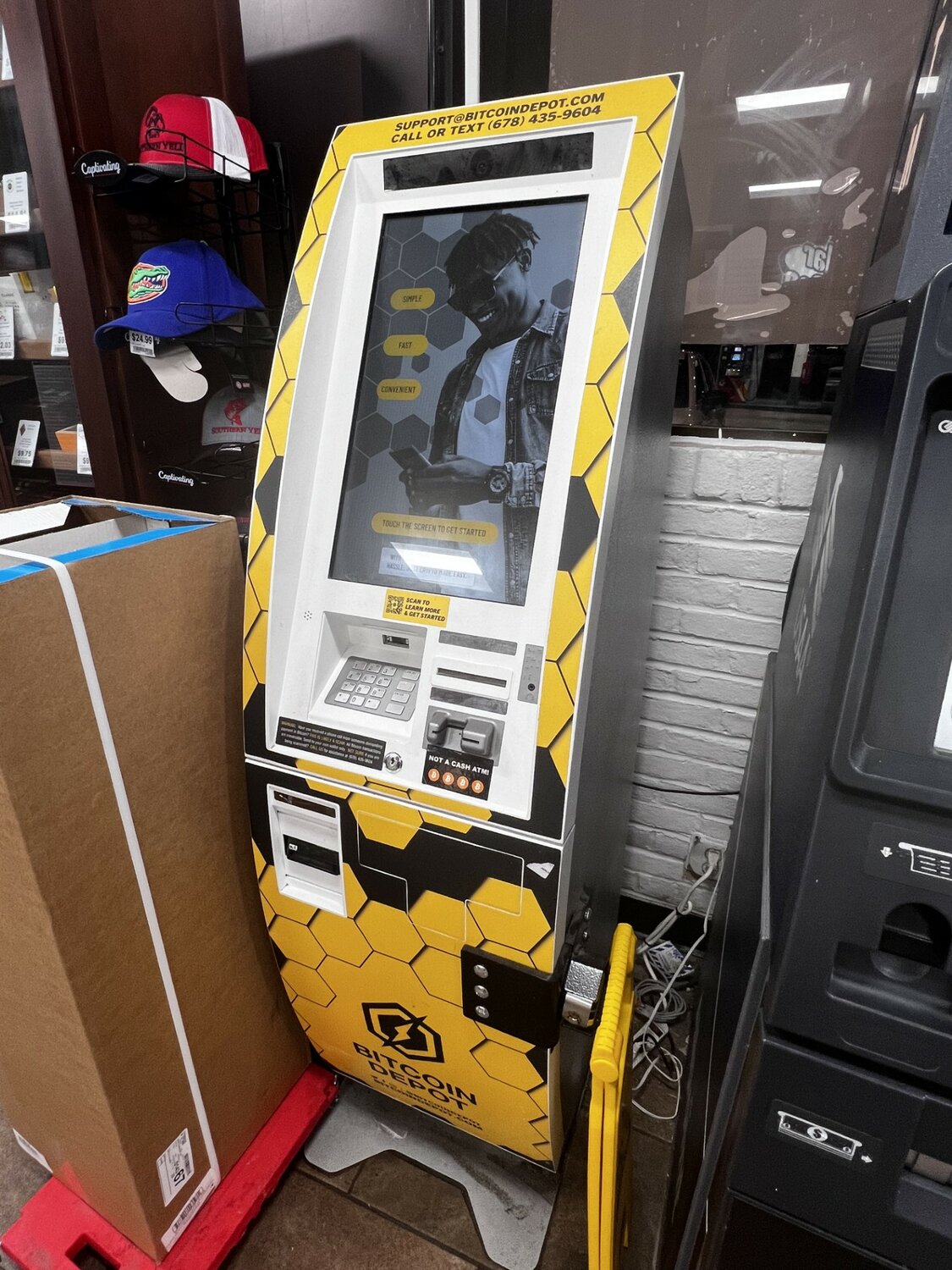Local woman saved by CCSO from Bitcoin scheme
kyla@claytodayonline.com
CLAY COUNTY – While at a local Circle K gas station on College Drive, Clay County Sheriff’s Office Lt. Michael Layne overheard and saw something strange. It was a woman standing in front of …
This item is available in full to subscribers.
Attention subscribers
To continue reading, you will need to either log in to your subscriber account, below, or purchase a new subscription.
Please log in to continueDon't have an ID?Print subscribersIf you're a print subscriber, but do not yet have an online account, click here to create one. Non-subscribersClick here to see your options for subscribing. Single day passYou also have the option of purchasing 24 hours of access, for $1.00. Click here to purchase a single day pass. |
Local woman saved by CCSO from Bitcoin scheme
CLAY COUNTY – While at a local Circle K gas station on College Drive, Clay County Sheriff’s Office Lt. Michael Layne overheard and saw something strange.
It was a woman standing in front of a Bitcoin ATM. On speakerphone, someone with a foreign accent coached her on how to use the machine.
Layne said he decided to step in and see if the woman needed help. When he approached her, he said he could tell something was off. She was confused. He didn’t know the person but thought it was her bank, and her money was in danger.
As someone who has seen this scenario repeatedly, he realized what was happening and instructed her to hang up the phone.
And, luckily, she did.
Witnessing a scam right before his eyes, Layne said that had he not stepped in, the victim would have lost all her life savings that day.
Scams like this are becoming more prevalent in the county, predominantly targeting elderly communities. Layne said scammers tend to prey on older adults due to their vulnerability.
“Folks generally want to think that people are good-natured,” Layne said. “And, when that good-natured person, that they feel is good-natured anyway, instills that sense of urgency in them if they’re about to lose that money, they become much easier to victimize.”
That same woman had already been a previous victim. She even posted a public service ad about fraud after being scammed out of her money last year.
Layne said the internet is making financial fraud a lot easier. He said the web makes it easy for criminals to get people’s information, spoofing their phone numbers and claiming to be anyone they want to be.
And this makes it hard for law enforcement to catch them as many scammers use a VPN, making tracking their location almost impossible. Once a machine records a transaction, there is no way to get it back.
“It’s difficult sometimes for law enforcement because many of these crimes are perpetrated overseas,” Layne said. “And with the internet, they can reach right out and touch our victims here in Clay County.”
Currently, there are several of these machines throughout the county. Layne said the state regulates them, and CCSO seeks more information to keep the public aware.
Although the machines serve the purpose of buying or selling cryptocurrency, he said it’s essential to be aware of its ramifications.
“The ATMs serve a valid purpose,” Layne said. “The problem is that it’s all electronic, and they also make it very easy. If somebody puts money in somebody else’s wallet, it’s gone.”
As some general tips for avoiding possible scammers, Layne said always to be mindful of who you’re talking to and be wary of phone numbers. He said that sometimes scammers begin by saying that they are calling from “your financial institution.” That is a good clue.
“Hang up the phone and call your bank at their appropriate number,” Layne said, “or reach out to them on the internet or whatever the case might be.”
He also said it is common for individuals to claim that they are law enforcement. Many will ask for a payment for an unpaid ticket or jury duty fines. He assured law enforcement would never ask to be paid via Apple Pay or Green Dot card.
“Those are not valid forms of payment to pay a bill,” Layne said. “Those are somebody who’s trying to obtain that tangible benefit.”
In the occurrence that an individual is scammed, Layne said to first report the case to local law enforcement. Next, he said to use that case number to file a report with www.ic3.gov. Here, the case will be reported on the federal level.
Then, individuals should freeze all three credit reports using the three primary credit bureau services Equifax, Experian and TransUnion. This is free of charge.
He said a freeze on the credit reports prevents scammers from opening accounts in someone else’s name.
Layne said that residents must be aware that while most people are concerned about violent crime, financial crimes are on the rise.
“Internet crime is increasing, and they should be very mindful that anytime they’re dealing with somebody who is requesting or asking about any sort of personal information, they should make sure that that person is the person they think they are,” he said.







